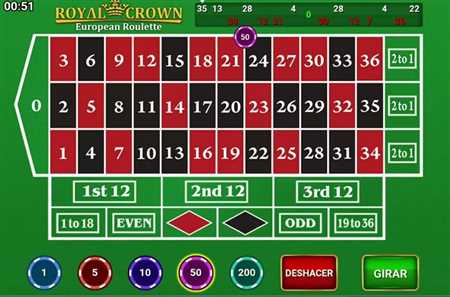

In recent years, one particular variant of a classic casino game has gained significant traction among players in England. With its captivating gameplay and enticing thrill, this version has carved a niche for itself within the vibrant gambling community. A blend of chance and strategy, it provides an engaging experience that keeps enthusiasts returning for more.
What sets this game apart from its counterparts is the distinctive structure that governs its mechanics. Players often find themselves drawn to the various betting options and the unique dynamics involved. The allure of better odds creates an environment where informed decisions can lead to favorable outcomes, elevating the overall enjoyment of participants.
Many factors contribute to its widespread appeal, including cultural influences, social engagement, and the accessibility of gameplay. As individuals explore different strategies to maximize their chances, the game fosters a sense of camaraderie and excitement among those who partake in it. As a result, the experience transcends mere gambling, becoming an integral part of leisure activities for many.
As we delve deeper into the reasons behind its popularity, it becomes clear that appreciation for this particular variation stems from a combination of elements that resonate with players. Understanding the nuances of its gameplay can enhance the overall enjoyment and potentially lead to more successful outcomes for those seeking both fun and fortune.
This game enjoys a significant following in Britain, captivating players with its unique features and competitive odds. Numerous factors contribute to its appeal among gambling enthusiasts, making it a preferred selection in casinos and online platforms alike.
The demographic profile of participants reveals a diverse range of individuals, from casual gamers to seasoned professionals. Many prefer this variant for its strategic elements, which allow for more thoughtful engagement.
The origins of this popular casino game can be traced back to 18th-century France. Over time, it has evolved into a staple within gambling establishments across numerous countries. Its blend of chance and strategy has attracted players from diverse backgrounds, making it a perennial favorite in social and competitive settings.
Initially, the game was played with a more rudimentary design, featuring a wheel and a simple betting layout. As it gained popularity among the elite, significant improvements were made to enhance its appeal. The modern structure, which players recognize today, emerged in the 19th century and contributed to its widespread acceptance throughout Europe and beyond.
Several factors have contributed to its prominence in modern gaming culture. The allure of high stakes, coupled with the unique characteristics of the betting system, has enticed a broad audience. Additionally, the introduction of digital platforms has allowed newer generations to engage with this classic pastime, ensuring its relevance in today’s entertainment landscape.
In today’s gaming landscape, understanding the fluctuations in player preferences and behaviour is crucial. Recent data reveals notable shifts in gambling habits, particularly among enthusiasts seeking more engaging experiences. A focus on statistics offers valuable insights into what attracts players to various table games, highlighting trends that are shaping the industry.
Recent surveys indicate a surge in interest for specific variants of games, with many individuals now gravitating towards options that present advantageous probabilities. The community is increasingly drawn to environments that enhance their gaming experience, fostering a culture centered on skill and strategy. This shift is reflected in the growing number of players participating in interactive and immersive gaming sessions.
With the rise of online platforms, revenue reports illustrate a significant increase in stake amounts. Analysts forecast a continuous upward trajectory, driven by advancements in technology and expanded accessibility. Statistics show that regions embracing innovative gaming solutions experience enhanced player engagement and a broader demographic reach. This evolution not only supports established venues but also promotes the emergence of new opportunities for gaming enterprises.
When it comes to casino games, individuals often gravitate towards options that offer the most favorable experiences. Preferences can vary widely based on personal taste, but certain features attract players to specific gaming options. Understanding these inclinations is crucial for both players and operators in creating an appealing atmosphere.
Each group has unique needs, and understanding these can enhance the overall gaming experience and create a loyal player base.
In any gambling scenario, the concept of an advantage for the establishment plays a crucial role in determining the player’s success. This inherent statistical advantage ensures that the casino continues to profit over time, regardless of individual game outcomes. Understanding this principle is vital for anyone looking to maximize their enjoyment and potential winnings.
At its core, this advantage represents the difference between the true odds of winning and the payouts offered by the establishment. Here are some key points to consider:
Various games offer distinct percentages, which can significantly impact long-term outcomes. Players should be aware of these differences to make informed choices and enhance their overall gaming experience.
Ultimately, grasping the nuances of this principle leads to more strategic gameplay, better management of funds, and increased enjoyment while engaging in these activities.
The distinction between the two popular versions of the game is crucial for players seeking the most favorable circumstances. Each variation features unique elements that influence gameplay and the potential for winning. Understanding these differences can significantly enhance the gaming experience, leading to more informed betting decisions.
One of the primary contrasts lies in the percentage of advantage retained by the casino. In the American variant, the presence of both a single zero and a double zero results in a higher edge, reducing players’ chances of success. Conversely, the alternative format only incorporates a single zero, which effectively lowers the casino’s advantage, making it more appealing to strategic bettors.
The options available for wagering and the overall dynamics of each variant differ notably. The American format offers more betting possibilities, but this abundance can lead to complexities that may overwhelm newcomers. On the other hand, the simpler structure of its counterpart allows for easier understanding and quicker adaptation for those unfamiliar with the game.
The concept of advantage for the establishment is a crucial aspect of many gambling games, influencing both player experience and potential outcomes. Understanding how this mechanism operates can enhance one’s approach to these games, allowing for more informed decisions and strategies.
At its core, the advantage manifests through the difference between the odds of winning and the payouts offered for those winning bets. This disparity ensures that, over time, the establishment will always secure a profit. Several fundamental elements contribute to this phenomenon:
In-depth analysis of these components reveals how they collectively influence the overall experience. Furthermore, recognizing this can empower players to refine their strategies and engage more meaningfully with the game.
The significance of a smaller advantage for the establishment cannot be underestimated. Gamblers often seek ways to improve their chances of success, and understanding the impact of this mathematical concept can lead to more informed decisions. When the odds favor the player to a greater extent, it enhances not only the excitement but also the potential for profit.
When establishments have a minimized advantage, players experience a better likelihood of securing wins. This encourages participation and sustains interest over time, creating a more dynamic atmosphere. Players are often drawn to scenarios where their efforts can yield favorable results, fostering a sense of optimism and engagement.
In gaming scenarios with a reduced establishment advantage, every wager made feels like a more valuable investment. Participants tend to relish the thrill of competition while being aware that their chances are not heavily skewed against them. This aspect contributes to a more enjoyable experience, making it appealing for both seasoned enthusiasts and newcomers alike.